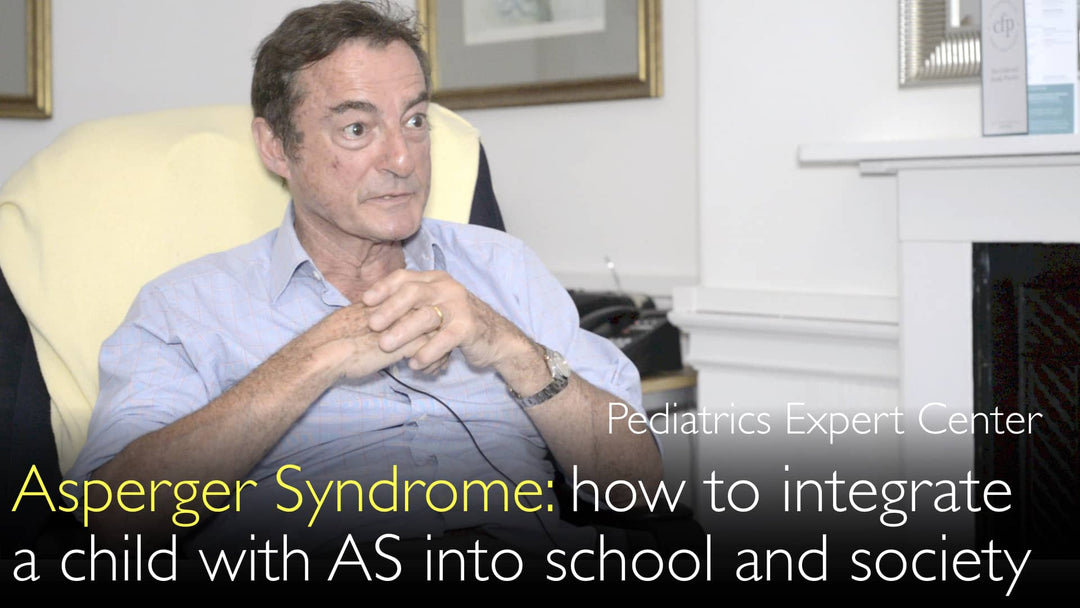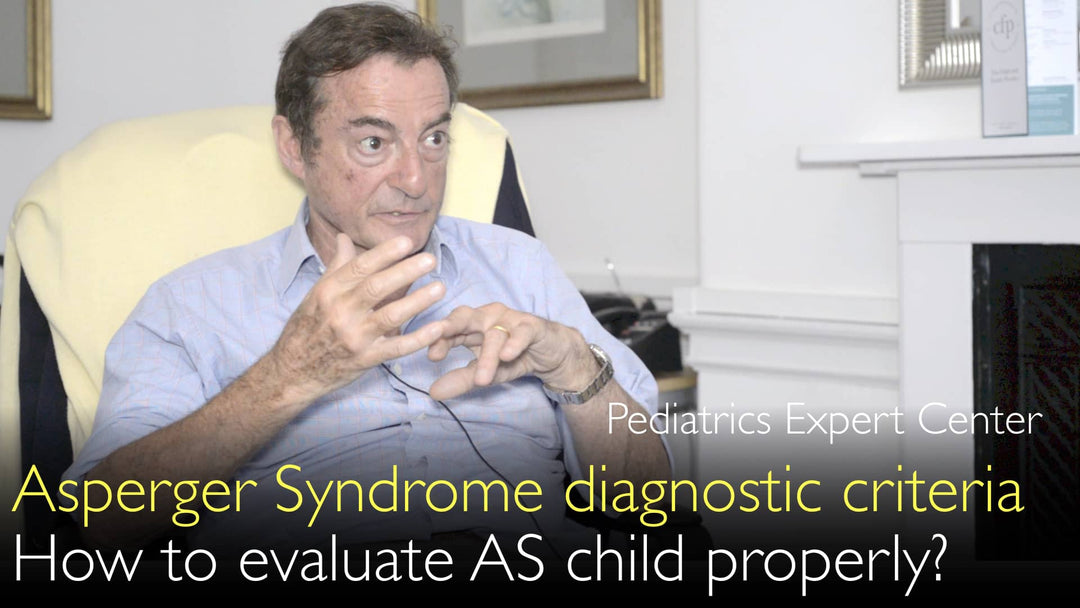Leading expert in holistic ADHD treatment, Dr. Sanford Newmark, MD, explains the critical diagnostic process for attention deficit hyperactivity disorder. He emphasizes that only specialists should evaluate children for ADHD. A proper diagnosis requires multiple, lengthy visits and a detailed clinical evaluation. Rushing to diagnose ADHD can lead to incorrect treatment. Medical second opinions confirm an accurate diagnosis and optimal treatment plan.
Accurate ADHD Diagnosis: A Comprehensive Guide to the Evaluation Process
Jump To Section
- Specialist Evaluation Importance
- Time Commitment for Diagnosis
- Role of General Pediatricians
- Nutritional Supplements in Therapy
- Medical Second Opinion Value
- Full Transcript
Specialist Evaluation for Accurate ADHD Diagnosis
Dr. Sanford Newmark, MD, stresses that only specialists should conduct the ADHD diagnostic process. He compares it to referring a patient with diabetes to an endocrinologist. A child psychologist, developmental pediatrician, or child psychiatrist possesses the necessary expertise. This ensures the ADHD diagnosis is correct and complete.
Many ADHD diagnoses are incorrect when made without specialist input. Dr. Anton Titov, MD, discusses the importance of a thorough evaluation. Teachers and parents provide valuable input through diagnostic checklists. However, a detailed clinical evaluation by a specialist is irreplaceable.
Significant Time Commitment Required for ADHD Diagnosis
Dr. Sanford Newmark, MD, spends an average of two hours evaluating a child for ADHD. This extensive time is necessary to make or reject an ADHD diagnosis correctly. The process involves separate and joint conversations with the child and parents. Communication with teachers or other caregivers is also essential.
Rushing an ADHD diagnosis can have long-term consequences. Dr. Newmark warns that a hasty decision may lead to significant pharmaceutical therapies. A proper ADHD diagnostic assessment is a serious decision that affects a child for years.
The Role of General Pediatricians in ADHD Evaluation
When a specialist is unavailable, Dr. Sanford Newmark, MD, advises general pediatricians on best practices. He recommends breaking the evaluation into multiple visits. A pediatrician should not treat ADHD diagnosis as a "one visit problem." Scheduling a half-hour visit for evaluation and another for discussing diagnostic forms is a minimum standard.
This approach is far superior to a rushed 15 or 20-minute visit. Dr. Anton Titov, MD, explores the challenges parents face in accessing specialist care. Dr. Newmark acknowledges that many doctors lack deep ADHD knowledge. In such cases, they should refer children to specialists, just as they would for other complex conditions.
Nutritional Supplements in ADHD Therapy
Dr. Sanford Newmark, MD, highlights the role of proven nutritional supplements in ADHD treatment. Omega-3 fatty acids, typically from fish oil, are supported by clinical trials. A meta-analysis showed fish oil is about 40% as effective as pharmaceutical stimulants. It also has very few side effects.
Iron and zinc supplements are also important in ADHD management. Research links low iron levels to ADHD, and supplementation can help. A recent clinical trial using functional MRI showed altered iron metabolism in the brains of children with ADHD. Zinc levels are also crucial, and supplementing can benefit some children with ADHD.
The Value of a Medical Second Opinion for ADHD
Dr. Anton Titov, MD, discusses the importance of a medical second opinion for ADHD. This step confirms that an ADHD diagnosis is correct and complete. It also ensures the chosen treatment plan is the best available option. This is crucial for both ADHD and autism spectrum disorder.
Dr. Sanford Newmark, MD, supports this approach to guarantee quality care. A second opinion provides confidence to parents navigating their child's health. It is a critical part of the holistic treatment process for attention deficit hyperactivity disorder.
Full Transcript
The ADHD diagnostic process has to be done correctly. Leading expert on holistic treatment of attention deficit disorder discusses how to approach attention deficit hyperactivity disorder diagnostic process. How to evaluate a child with possible ADHD? Why children with possible ADHD diagnosis must be seen by experts who strictly follow the ADHD diagnostic process?
ADHD diagnostic process is very important for correct diagnosis of ADHD. Only a specialist in attention deficit hyperactivity disorder should evaluate children with potential ADHD. Many diagnoses of ADHD are wrong and mistaken.
Dr. Anton Titov, MD: Teachers at school and parents fill questionnaires. ADHD diagnostic process has to be followed by teachers and parents diligently. They contain ADHD diagnostic checklist. But detailed clinical evaluation of a child with potential ADHD is required.
ADHD diagnostic assessment centers around time-consuming pediatric behavioral neurologist examination. A child suspected to have ADHD should have several visits to the evaluating physician. Medical second opinion helps to make sure ADHD diagnosis is correct and complete. Medical second opinion also helps to choose the best treatment for ADHD.
Dr. Anton Titov, MD: Diagnostic test for children with suspected ADHD should be performed only by an experienced neurological specialist. Video interview with top expert in pediatric attention deficit hyperactivity disorder (ADHD, ADD) and autism. ADHD diagnostic process requires deep understanding by the doctor and parents.
Medical second opinion confirms that ADHD diagnosis is correct and complete. Medical second opinion also confirms that ADD treatment is required. Medical second opinion helps to choose the best treatment for autism and ADHD. Get medical second opinion on ADHD and autism spectrum disorder and be confident that your treatment is the best.
Dr. Anton Titov, MD: You mention that you spend on average about two hours evaluating the child to make ADHD diagnosis or to reject ADHD diagnosis. You talk to the child and parents separately and together. You talk to teachers or other caregivers.
Perhaps a parent does not have the luxury of access to such expertise. Perhaps a parent can only consult a community-based pediatrician. How to ensure that a child is evaluated for ADHD in the best way?
Dr. Sanford Newmark, MD: That is a really hard thing. There are specialists to diagnose ADHD. My prejudice is this. Only physicians with real knowledge of the ADHD field should conduct an ADHD diagnostic process.
Imagine that a pediatrician saw somebody with diabetes in the United States. This pediatrician would refer a patient to an endocrinologist pretty quickly. The same thing should happen with ADHD.
General practitioners or pediatricians must refer a patient to a child psychologist or a developmental pediatrician or child psychiatrist. But unfortunately that's not always possible.
A general pediatrician should break visits up and say, “Okay. ADHD? Let's spend a half an hour to evaluate the child. Then we will do the diagnostic forms. Then a child and parents will come back. I will spend another half an hour with them.”
At least in an hour you can make much better evaluation than in a 15 or 20 minutes off-hand visit. But then I also think this. Many doctors don't really know ADHD. They shouldn't be dealing with ADHD then.
They should refer children to ADHD specialists. Just like with other specialized medical problems. General physicians may not know a lot about specialized problems. ADHD is very specialized.
But that may not be possible in certain places. It is not possible internationally, in under-served places. There just may not be ADHD specialists available.
Dr. Anton Titov, MD: General pediatrician can break the visits down. They should not think about ADHD diagnosis as a "one visit problem". Because it certainly can affect the child for many years to come. Rushing to diagnosis may lead to pretty significant pharmaceutical therapies. ADD diagnosis is serious decision to make.
Dr. Sanford Newmark, MD: It is a serious decision to make. How to treat ADHD is a serious decision. Even if a doctor decides that they have ADHD, pediatricians should put the amount of time necessary into dealing with ADHD.
Physicians should break down visits into several parts. That is often what the pediatric residents ask me.
Dr. Anton Titov, MD: The people who are being trained here ask me, "So how can we do this? We only have these short visits." I say, "You have short visits but you are allowed to schedule more of them." If that's what it takes to evaluate a child for ADHD properly, that's what physicians should do.
Dr. Anton Titov, MD: Is there a role for other nutritional supplements in ADHD therapy? For example, fish oil, fatty acids, iron supplements. Can they be used in the treatment of ADHD?
Dr. Sanford Newmark, MD: Absolutely. These are useful food supplements that have been proven by research. For example, there have been a number of clinical trials showing that omega-3 fatty acids are helpful for ADHD.
Omega-3 fatty acids are usually given as fish oil. One meta-analysis was done. This analysis combined several clinical trials. It showed that fish oil was about 40% as effective as the pharmaceutical stimulants. Fish oil had very few side effects.
We also noticed that low iron levels are associated with ADHD. Treating low iron levels with iron supplements can help ADHD. A recent clinical trial looked at iron use in the brain by functional MRI.
Study showed that iron metabolism in the brain was different in kids with ADHD. Zinc is another food supplement that has been studied in ADHD. Some clinical trials show that zinc levels are important in ADHD process. Supplementing diet with zinc can help kids with ADHD.
ADHD diagnostic process. Video interview with top expert in holistic treatment of ADHD. Only specialists should evaluate kids with ADHD.







